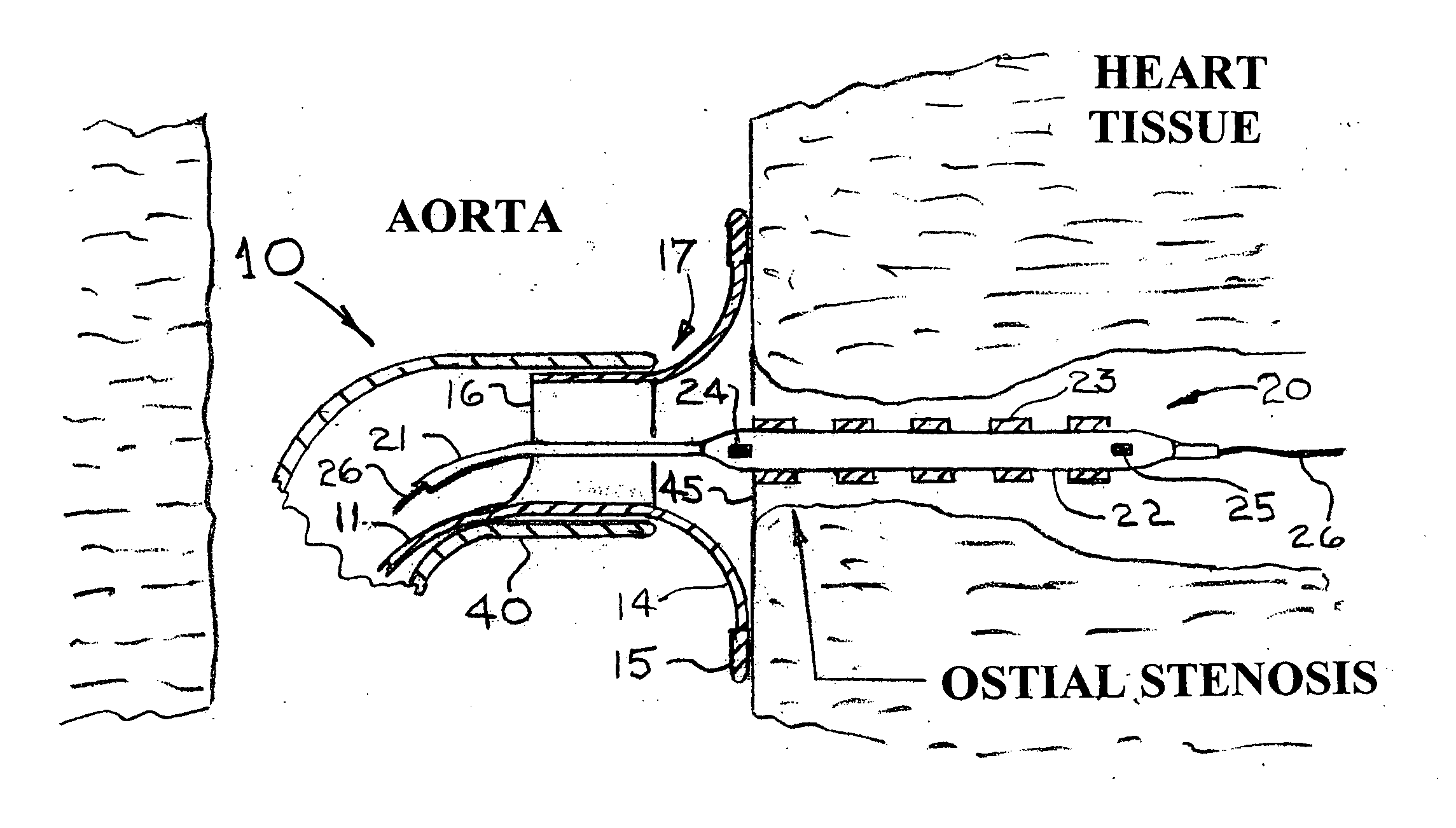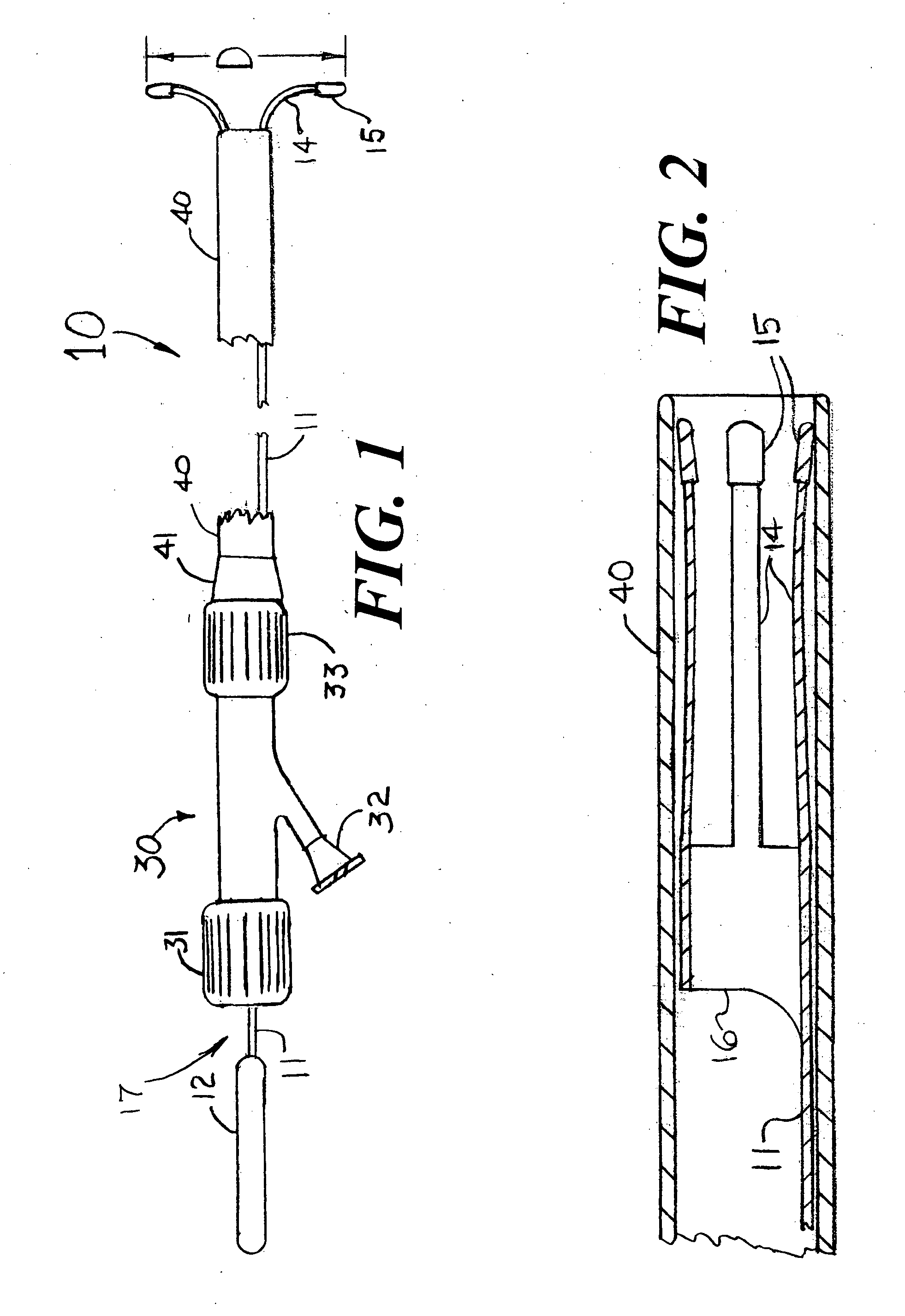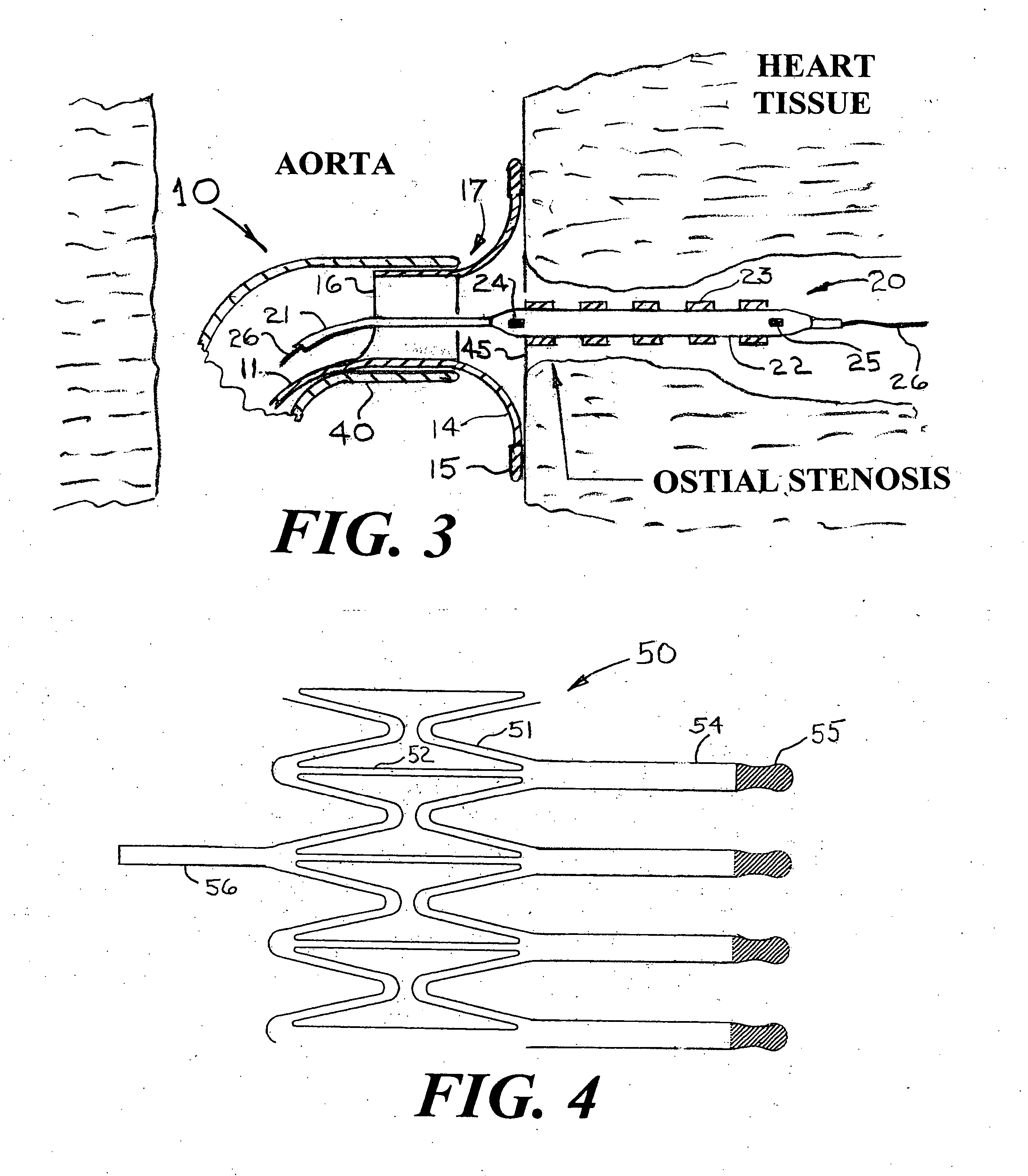Device and method for placing a stent at the ostium of a blood vessel
a technology of blood vessel and ostium, which is applied in the field of devices for placing stents, can solve the problems of preventing an accurate stent positioning system, interventional cardiologist or radiologist is frequently unable to place the stent's proximal end, etc., and achieves the effect of accurate placemen
- Summary
- Abstract
- Description
- Claims
- Application Information
AI Technical Summary
Benefits of technology
Problems solved by technology
Method used
Image
Examples
Embodiment Construction
[0016]FIG. 1 is a side view of a catheter system 10 whose object is to accurately place a stent with its proximal end being situated close to the ostial plane of an artery having an ostial stenosis. The catheter system 10 would include an ostial stent positioner 17 that has a wire 11 which connects a small diameter handle 12 to a cylinder 16 (shown in FIG. 2) which has expandable distal end legs 14 with radiopaque feet 15. FIG. 1 also shows a guiding catheter 40 that has a proximal Luer fitting 41 that is joined to a Touhy-Borst fitting 30. When the feet 15 are fully expanded, the diameter “D” would typically be between 4 and 10 mm for coronary artery stenting and between 5 and 15 mm for stenting a renal artery. When the expandable legs 15 with radiopaque feet 15 are fully expanded they would have the general appearance of the petals of a flower. When the legs 15 are pushed forward beyond the distal end of the guiding catheter 40, they expand radially outward as shown in FIG. 1. Whe...
PUM
 Login to View More
Login to View More Abstract
Description
Claims
Application Information
 Login to View More
Login to View More - R&D
- Intellectual Property
- Life Sciences
- Materials
- Tech Scout
- Unparalleled Data Quality
- Higher Quality Content
- 60% Fewer Hallucinations
Browse by: Latest US Patents, China's latest patents, Technical Efficacy Thesaurus, Application Domain, Technology Topic, Popular Technical Reports.
© 2025 PatSnap. All rights reserved.Legal|Privacy policy|Modern Slavery Act Transparency Statement|Sitemap|About US| Contact US: help@patsnap.com



